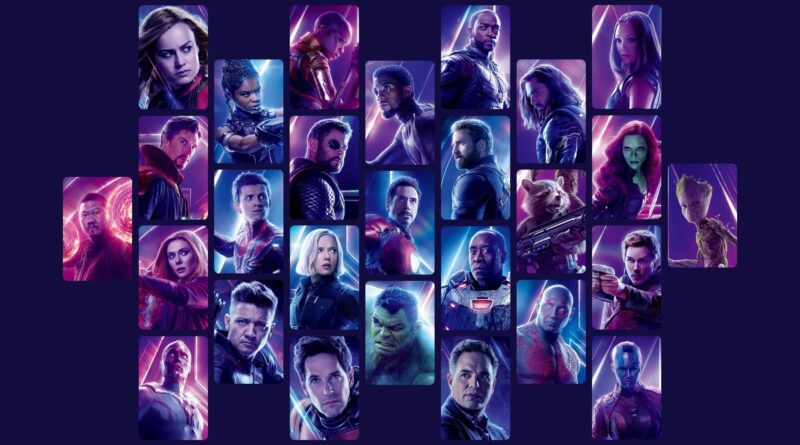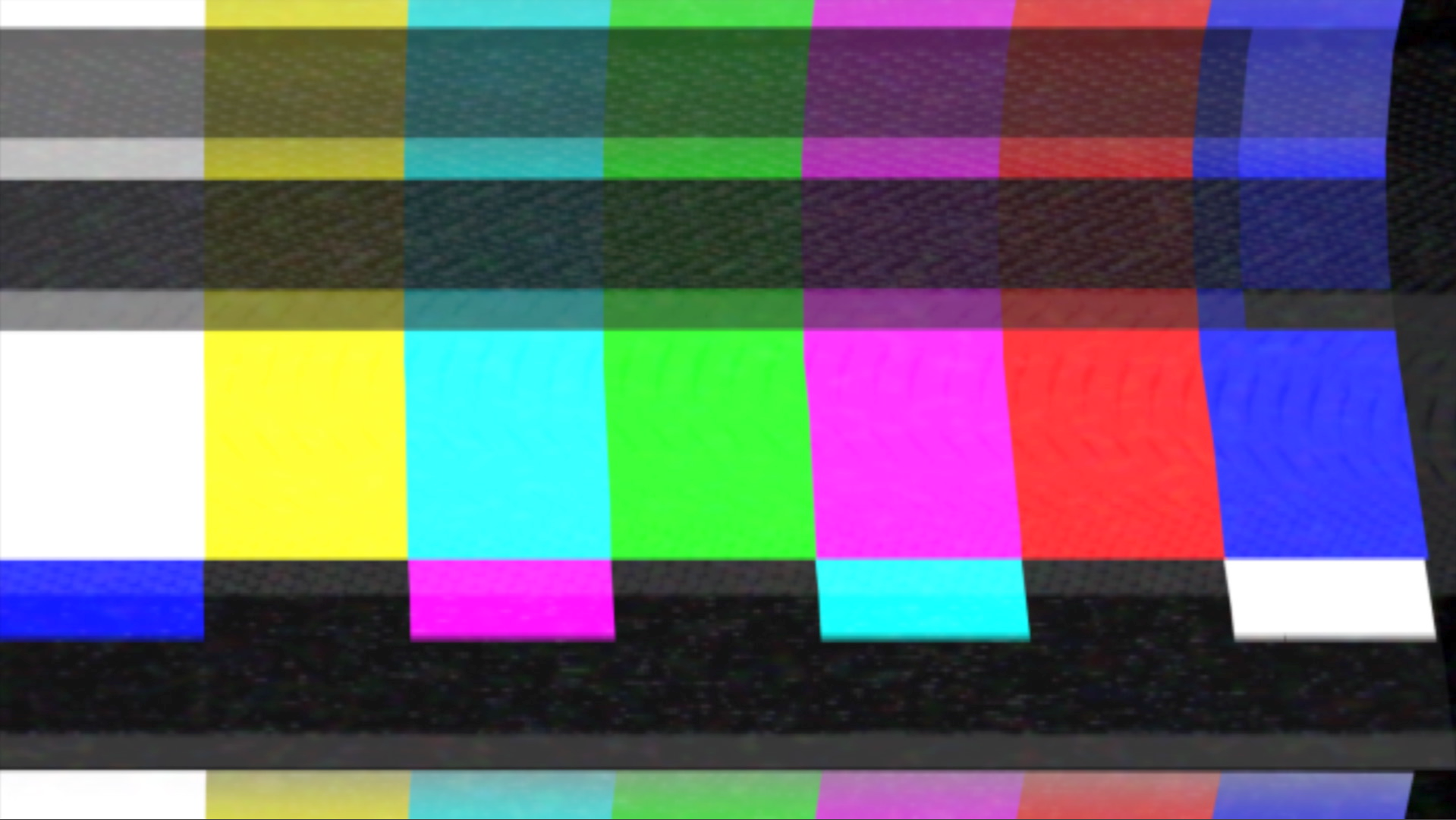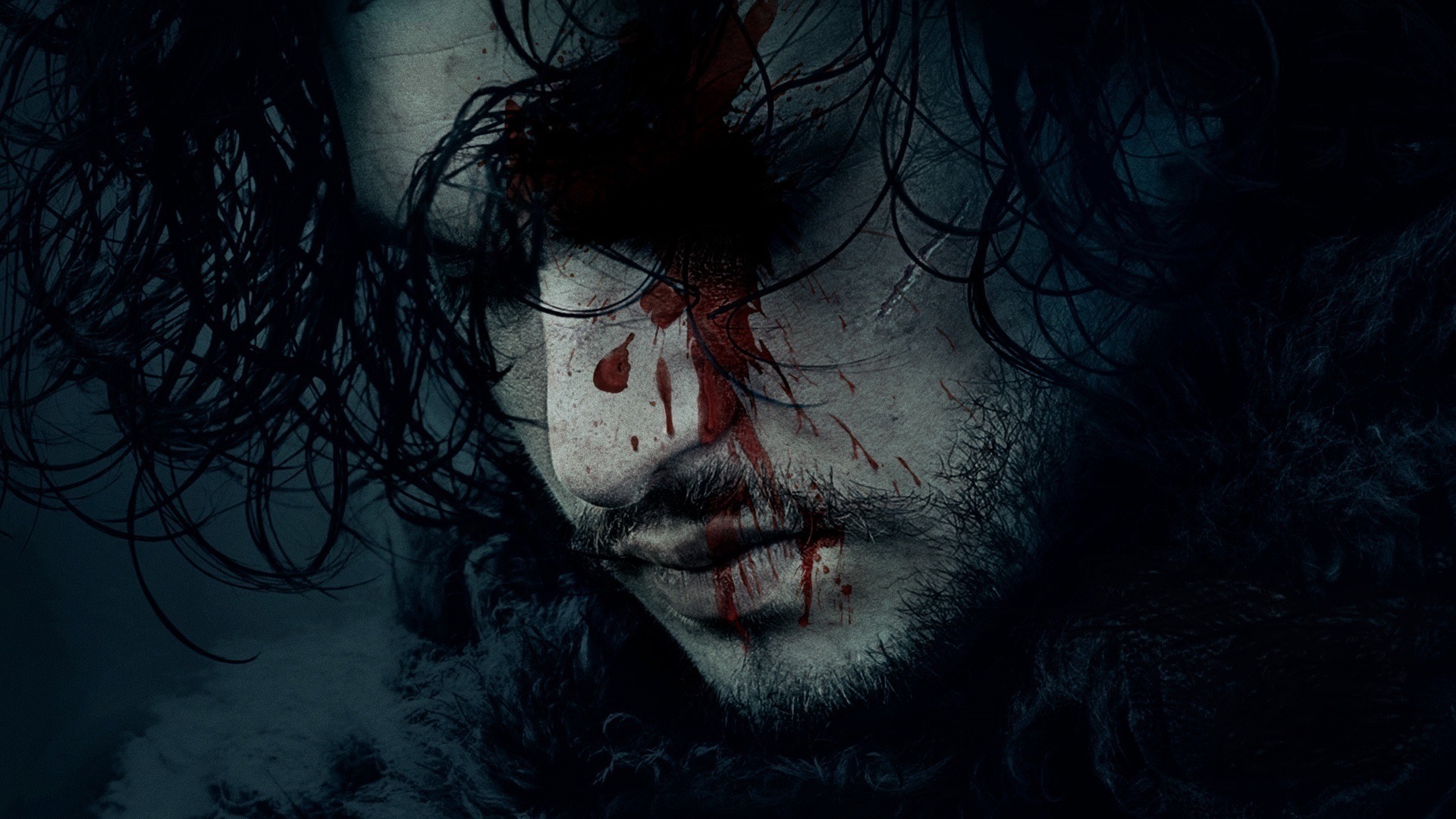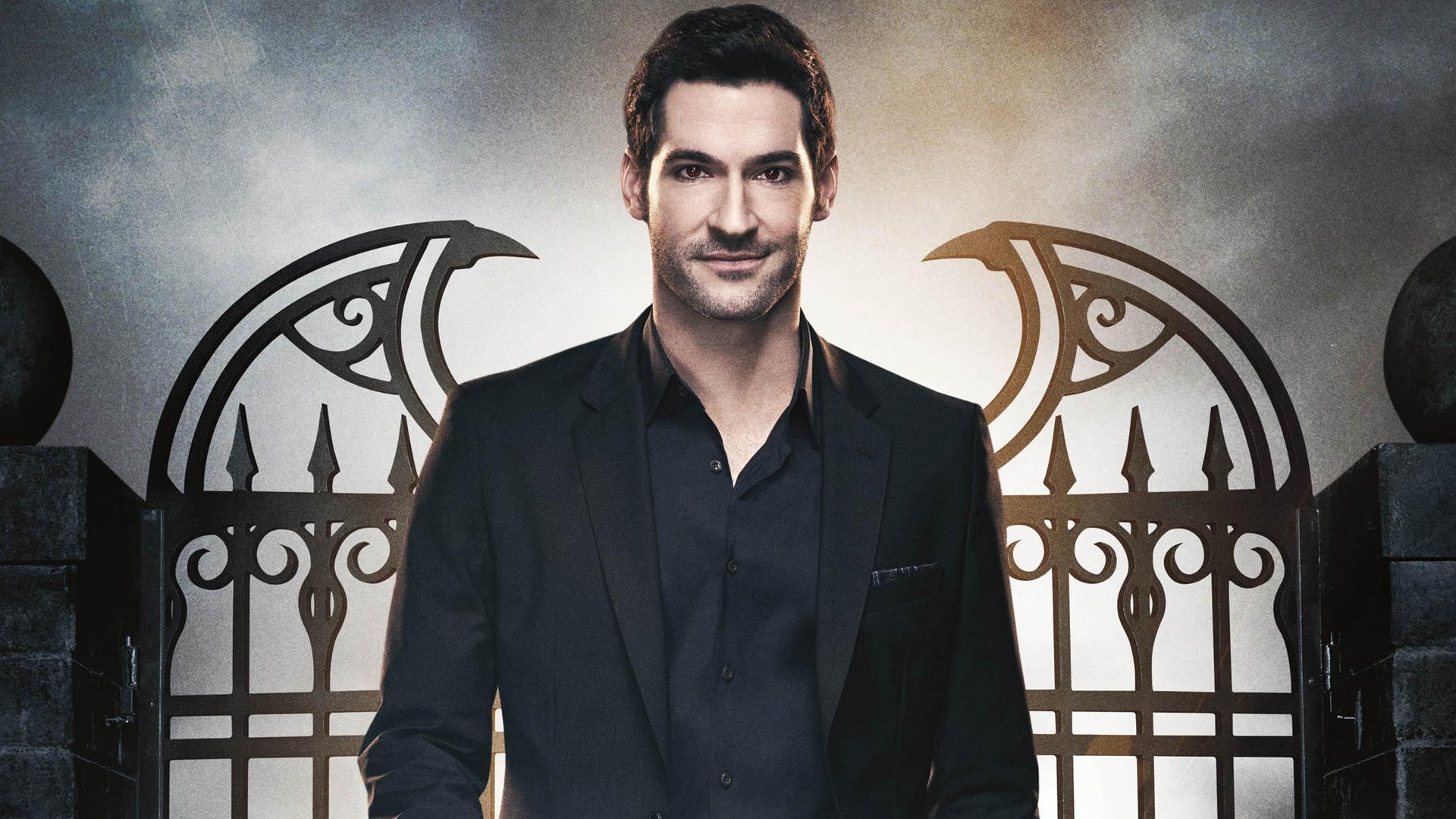The Music of Marvel: Tunefind’s Guide to the MCU
The Marvel Cinematic Universe (MCU) has soared to unprecedented heights, captivating audiences worldwide with its thrilling superhero sagas. While spectacular visuals and compelling narratives take center stage, another unsung hero plays a pivotal role in bringing these stories to life – music. From the booming orchestral scores to the carefully curated soundtrack selections, the MCU’s clever use of music is a superpower that shouldn’t be overlooked. Join us as we dive into the heroic world of Marvel’s musical might.
Marvel Studios arranges its content into “Phases,” of which the first three are collectively referred to as “The Infinity Saga” and the next three as “The Multiverse Saga.” Each phase consists of a film and TV series collection with loosely connected storylines. Phases are determined both by release dates and subject matter.
Scroll to the bottom for Tunefind’s index of the MCU by phase.
Fanfare
As the MCU has evolved, so have its musical elements. One of the most iconic Marvel sounds is the ‘Marvel Fanfare’. Going back to the beginning of the cinematic universe, the early films open with the original Marvel logo, which consists of flipping comic book pages. The accompanying audio of the first few Marvel logo scenes range from the sound of flipping pages, original score from the project, and even sound effects and sound bites. The movies in Phase 1 share the quintessential opening sequence with the logos of other studio partners such as Universal Studios and Paramount Pictures.
When Thor: The Dark World premiered in 2013, a new Marvel logo was unveiled, and this time the introductory Marvel production logo stands alone. Marvel Studios president Kevin Feige explained how being a part of The Walt Disney Company provided an opportunity to refresh the opening sequences.
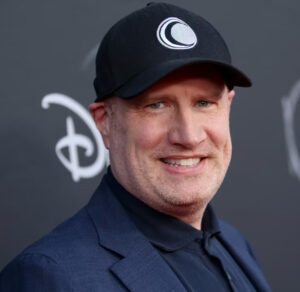
“We’ve used that logo for eleven years, and with ‘Thor: The Dark World,’ it felt like a good time to update it because this is the very first film that only has the Marvel logo in front of it,” shared Feige. “But now that we are our own entity within The Walt Disney Company, it is only the Marvel logo in front of the movies. So that felt like the time to update it and have something that is more substantial as a standalone logo in front of our features,” Kevin concluded.
While composer Brian Tyler was working on the original score for Thor: The Dark World he was also tasked with updating the music for the Marvel Studios logo, dubbed ‘Marvel Studios Fanfare’. The new music accompanies updated visuals that replace the flipping comic book pages with a larger than life dimensional lettering concept that has been used in variation since.
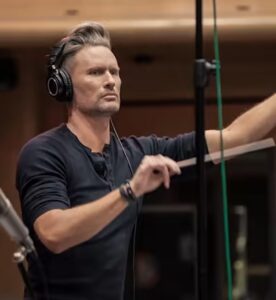
Now, ten years since the updated logo sequence was unveiled, many franchise additions still employ the iconic imagery and music. Although some projects use the opening sequence as an opportunity for creativity and have opted to use various other pieces of music or sound clips. The ‘Marvel Studios Fanfare’ is one of the most recognizable melodies for any Marvel fan.
Phase 1
Iron Man
The very first movie of the MCU is none other than Iron Man, starring Robert Downey Jr. By extension the MCU’s first sync placement is AC/DC’s ‘Back in Black’. Director Jon Favreau had a clear vision of heavy metal music and guitars for the project, saying that Tony Stark was more of a rock star than a traditional superhero. Favreau’s vision for the style of music was so clear that it carried over into the original score. Composer Ramin Djawadi had long been a fan of the character Iron Man as a child and sought the composer title on the film.
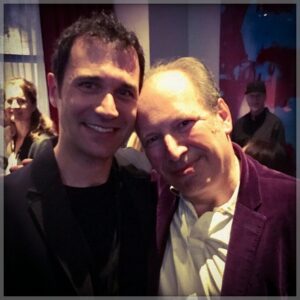
Due to time constraints and the final cut of the film changing often, Djawadi had help with arrangements and additional cues from composer Hans Zimmer. Djawadi composed most of the film’s score on guitar, before arranging it for orchestra. Djawadi composed several themes for the character of Tony Stark, all of which represent the characters’ different moods and attitudes inspired by Robert Downey Jr.’s performance. Other themes for the film are, according to Djawadi, “not so much character based, but rather plot based.“
Iron Man 2
The second Iron Man film followed in the footsteps of the first and included a rock haven soundscape. Iron Man 2 prompted AC/DC to release a compilation album of their work that included 15 of the band’s songs. The compilation album was named after the film and released in April of 2010. Of the 15 songs included on the album, only ‘Shoot to Thrill’ and ‘Highway to Hell’ were ultimately featured in the film, while ‘Thunderstruck’, ‘War Machine’, and ‘The Razors Edge’ were used in trailers and commercials.
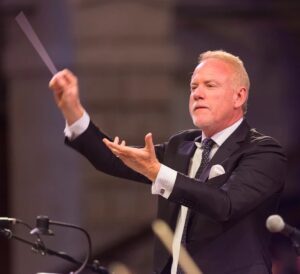
Previous collaborator of director Jon Favreau, John Debney, replaced Ramin Djawadi as the composer on the Iron Man sequel. Debney explained that while his score for Iron Man 2 still uses rock elements, his work on the film was, “quite different in many ways from the last score.” Although this score included guitar and contemporary elements, it is also much bigger and darker in tone and scope.
Thor
The God of Thunder made his entrance to the MCU in the spring of 2011. Thor’s introduction to the franchise featured a score-heavy soundtrack that offers a detailed instrumental soundscape. Frequent collaborator of director Kenneth Branagh, composer Patrick Doyle was brought in. Branagh and Doyle discussed wanting the score to have a contemporary feel, while Doyle “was also eager for the score to contain a strong sense of melody.“
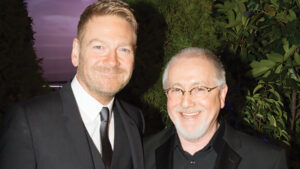
Doyle used contemporary, electronic and percussion-driven music for the Earth scenes, incorporating the then-trendy ostinato technique while using “broader orchestral strokes and thicker orchestration” to depict the grandeur and beauty of Asgard.
Thor features only 2 sync placements in the entire film. Most notable of which was ‘Walk’ by Foo Fighters. Marvel president Kevin Feige has stated that ‘Walk’ was a last minute addition to the movie, due to the crew feeling the song had eerily appropriate lyrics and themes. Kenneth Branagh in particular believed the lyrics about learning to walk again were appropriate for a movie about redemption, and learning to be a hero.
Captain America: The First Avenger
Captain America’s entrance to the MCU also served as composer Alan Silvestri’s introduction to Marvel. Silvestri is responsible for some of the most iconic film scores of today, from movies such as Back to the Future and Forrest Gump. Silvestri met with Captain America: The First Avenger director Joe Johnston to spot the film, and had seven and a half weeks to compose the score.
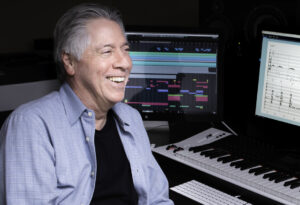
Johnston wanted a full orchestral score “to allow for movement” between the film’s two genres: a period piece and a futuristic, high-tech sci-fi film. He also noted a desire for the movie to have a central theme and Silvestri has been quoted saying, “To have some kind of musical signature either for a character or some aspect of the film, truly holds the score together. A theme makes the music feel like one piece in a sense.”
Percussive elements, intervals, and brass instrumentation were used for the Captain America theme, also referred to as ‘Captain America’s Fanfare’, due to those musical elements being associated with a heroic statement.
The Avengers
Closing out Phase 1 of the MCU is the epically iconic Marvel hero crossover film, The Avengers. Alan Silvestri returned to compose the score which would give birth to the archetypal ‘Avengers theme’. Marvel Studios and director Joss Whedon wanted a central, definable theme for the film.
Silvestri explains the thought process behind one of the most influential pieces of MCU music saying, “It certainly, first and foremost, had to have a heroic aspect to it, as well as a kind of grandness. And it all had to be generated from that scene when they’re all gathering for the last great battle. But the interesting thing about it as the ‘big moment’ of the score is that they’re not doing anything. They’re standing there, which allowed me to move away from the idea of it being an action moment. Instead, it’s like this moment where it’s like watching chemicals kind of swirling together, to become something greater than the individual elements.”
The Avengers cultivating togetherness in the face of danger is well-captured musically with the use of Nine Inch Nails’ ‘We’re In This Together’ featured in the movies official trailer, which received ample exposure leading up to the premiere of the film. The movies sync placements include an epic Iron Man 2 callback with AC/DC’s ‘Shoot to Thrill’, the casually cool track ‘Black Dirt’ by Emile Millar and Michael Baiardi, and ‘Live To Rise’ by Soundgarden played over the closing credits. Similar to the Iron Man films that preceded, a compilation album titled Avengers Assemble, was released, comprised of tracks from and inspired by The Avengers.
Phase 2
Iron Man 3
The MCU’s sophomore phase opens with Iron Man 3, however, unlike the previous two Iron Man films, Marvel brought in director Shane Black at the helm of this project. Black decided to move away from the rock sound of the previous Iron Man films and towards “a score that echoed the classics of super hero film history.”
Composer Brian Tyler added a touch of “iron” to the score by recording metallic noises like anvils being struck in addition to the traditional orchestra. Tyler also incorporated instances of the orchestra playing Black Sabbath-like riffs throughout the movie as a tribute to the previous Iron Man composers’ use of guitars. In order to portray Iron Man’s post-Avengers status in the MCU, Marvel expressly requested that Brian Tyler create a brand-new, distinct, and recognizable Iron Man theme, which Tyler described as a thematic reset.
Iron Man 3 also features a mixed bag of sync placements that include throwbacks such as, ‘Blue (Da Ba Bee)’ by Eiffel 65 and ‘Mambo No. 5’ by Lou Bega. Also featured in the film is an array of holiday classics such as, ‘Jingle Bells’, ‘Santa Claus is Back in Town’, and ‘O Christmas Tree’. On a comparatively more modern note, ‘Some Kind of Joke’ by Awolnation also received placement in this Marvel blockbuster.
Guardians of the Galaxy
Claiming their rightful place amongst the MCU is Marvel’s ragtag group of misfits known as, The Guardians of the Galaxy. Guardians is arguably one of the MCU’s most popular soundtracks due to the music-centric plot featured throughout its franchise.
The soundtrack album features the songs present on character Peter Quill’s mixtape in his Walkman in the film. Quill’s mixtape acts as a way for him to stay connected to Earth, his home, and his family. In early 2014, director James Gunn revealed that the film would incorporate songs from the 1960s and 1970s, such as Blue Swede’s ‘Hooked on a Feeling’ and ‘Come and Get Your Love’ by Redbone.
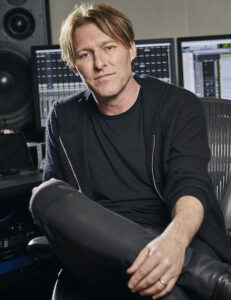
James Gunn brought composer Tyler Bates on board during pre-production so that Bates could produce music in advance for Gunn to use while filming. Gunn gave Bates resources to use when writing the music, such as pre-video sequences and during action scenes and intense dramatic moments, they would blast the score on set so that the cast, crew, and camera could move in sync with the music.
In addition, Phase 2 includes both Captain America and Thor sequels, the second Avengers film, Avengers: Age of Ultron, and closes the phase by introducing Ant-Man to the MCU.
Phase 3
Guardians of the Galaxy Vol. 2
When speaking about making the second film in the Guardian’s franchise, writer and director James Gunn shared, “Originally people kept asking me, ‘Don’t you feel a lot of pressure to do the second movie?’ and I didn’t in general, but I did feel a little pressure for the soundtrack because so many people loved it and we went platinum and all that other stuff. But I feel like the soundtrack in the second one is better.” Gunn added that Fleetwood Mac’s ‘The Chain’ and ‘Brandy (You’re a Fine Girl)’ by Looking Glass were the two songs that were, “the most deeply embedded into the fibers of the second film.”
Composer Tyler Bates was confirmed to return for the second Guardians film in August 2015 and began composing that December so that Gunn could, once again, use the music on set during filming. On using this technique again for the sequel, Bates said, “We’ve gone even further down that road…I would rather establish the DNA of our music prior to post-production, when everything’s so frenetic, so that we can work on themes and establish melodies that are original to the film.”
Black Panther
Kendrick Lamar produced the film’s curated soundtrack titled, Black Panther: The Album, along with Top Dawg Entertainment founder Anthony Tiffith. Director Ryan Coogler wanted to include original songs from Lamar in the film because his “artistic themes align with those we explore in the film.” The soundtrack includes both music from the movie and songs that were influenced by it.
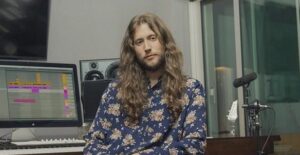
Composer Ludwig Göransson collaborated with Lamar and producer Sounwave on the soundtrack and in August 2018, an extended play named, Black Panther: Wakanda Remixed was released. The EP includes remixes of five cues from Göransson’s score. Göransson collaborated with a number of other musicians to produce the remixes.
In order to give Black Panther a unique voice and set it apart from other MCU movies, director Ryan Coogler sought out some of his former colleagues to work on the movie, including composer Ludwig Göransson. Göransson made the decision to travel to Africa after reading the script. He spent a month there, first touring with the musician Baaba Maal and then spending a number of weeks collaborating with local musicians to create the base of his compositions.
For his character themes, Göransson was especially drawn to the talking drum and the tambin, or Fula flute, as well as horns. Göransson’s effort to create the movie’s soundscape has been compared to the way James Gunn used music in the Guardians of the Galaxy movies, and is said to have effectively pushed Marvel out of their comfort zone. The film’s score would go on to win the 91st Annual Academy Award for Best Original Score in 2019 and the 61st Annual Grammy Award for Best Score Soundtrack for Visual Media in 2018.
Avengers: Infinity War
In June 2016, Alan Silvestri said that he would be returning to the MCU to compose music for Avengers: Infinity War. Since Silvestri had last worked on The Avengers in 2012, many characters had gained new themes and motifs.
During his initial discussion with directors Anthony and Joseph Russo, Silvestri talked about reusing themes from characters across the series. In the end, Silvestri and the Russo brothers decided against reprising the majority of these themes out of concern that it would make the score too distracting. Silvestri did however reprise Ludwig Göransson’s theme for Black Panther and numerous other character themes in the following Avengers film, Avengers: Endgame.
Despite reprising only a select amount of character themes for Infinity War, Silvestri does bring back several of his own original motifs. Perhaps the most notable being his Avengers theme, which was used extensively in the film’s marketing. Silvestri included a number of novel themes such as his character theme for Thanos. Silvestri chose to write a dark, brooding theme for Thanos rather than a grandiose, villainous one. This theme is initially heard in ‘Travel Delays’ and is then woven throughout the rest of the music as texture to emphasize the danger of Thanos.
Captain Marvel
Composer Pinar Toprak signed on to compose the Captain Marvel score in June 2018, making her the first woman to score an MCU film. Toprak first set out to find a common theme that would blend and unify the movies’ split setting between Earth and outer space.

She began by writing the theme for the main character, Captain Marvel, with the intention that Captain Marvel’s theme would be instantly recognizable from its first two notes. She then created themes for the Kree and the Skrulls, two conflicting alien races.
The film is set in 1995 and follows Carol Danvers journey to becoming Captain Marvel after Earth is caught in the center of a galactic conflict between two alien civilizations. Harkening back to the mid-nineties provided a marvelous opportunity for throwback tracks. The movie featured songs such as, ‘Whatta Man’ by Salt-N-Pepa and En Vogue, ‘Waterfalls’ by TLC, ‘Come As You Are’ by Nirvana, and ‘Just A Girl’ by No Doubt.
In addition, Phase 3 notably opens with the Iron Man vs. Captain America crossover Captain America: Civil War, introduces Doctor Strange and Spider-Man to the MCU, includes the third installment of Thor, Thor: Ragnarok as well as the Ant-Man and the Wasp sequel, and closes the Infinity Saga portion of the MCU with Avengers: Endgame.
Phase 4
Phase 4 of the MCU broke new ground when Marvel shrugged the confines of the silver screen and made its way into the world of TV. With the premiere of Wandavision on Disney+, our marvelous heros’ storylines could sprawl out over multiple hour-long episodes. Like Wandavision, other Marvel series such as The Falcon and the Winter Soldier, Loki, What If…?, and Ms. Marvel are score-heavy projects. In true Marvel fashion, most of the series depart from the status quo by releasing episodic albums of score, rather than one large score album.
Wandavision
Christophe Beck announced that he would compose the score for the Wandavision, after previously scoring both Ant-Man and Ant-Man and the Wasp. Through the use of period-appropriate instrumentation, composing styles, and recording and mixing methods, Beck pays homage to the sitcoms of each era. Early episodes have smaller orchestral ensembles, whereas later episodes have more of a rock-pop style. As the series goes on, the music becomes larger in scope.
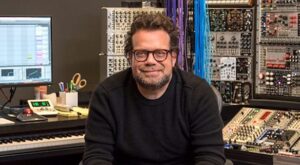
Beck was most excited for the opportunity to write a definitive character theme for Wanda that is heard during the series’ end credits. Christophe hoped other composers would reprise Wanda’s theme for the character’s future MCU appearances. Beck also wrote a love theme for Wanda and Vision that conveys feelings of love, tragedy, and sadness.
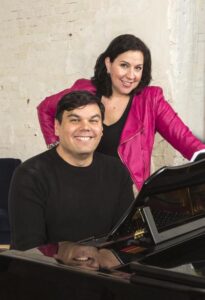
Robert Lopez and Kristen Anderson-Lopez wrote theme songs for some of the series’ episodes. One of the theme songs, ‘Agatha All Along’, went viral after appearing in the 7th episode of the series. Peaking at No. 1 on iTunes’ Soundtrack chart, reaching No. 5 on iTunes’ Top 100 singles chart, and debuting on Billboard’s Digital Song Sales chart at No. 36.
The track also earned the 73rd Annual Primetime Emmy Award for Outstanding Original Music and Lyrics in 2021 and was nominated for the 64th Annual Grammy Award for Best Song Written for Visual Media in 2021. Soundtrack albums for each episode, including Beck’s score and the theme songs by Lopez and Anderson-Lopez, were released digitally after each episode
Black Widow
The much anticipated Black Widow was released in June 2021 and details the backstory behind character Natasha Romanoff, aka Black Widow. The film features a stand out opening title sequence that simultaneously depicts Natasha and her younger sister Yelana’s sinister indoctrination into the Black Widow program. The chilling sequence is accompanied by an equally haunting cover of Nirvana’s ‘Smells Like Teen Spirit’ by Malia J. Other sync placements include ‘American Pie’ by Don McLean and ‘Cheap Thrills’ by Sia.
Composer Lorne Balfe was brought onto the project late in the movie’s post-production phase. Balfe wanted to concentrate on giving Romanoff a new musical identity, however he did reference Alan Silvestri’s character motif for Romanoff in addition to the Avengers theme.
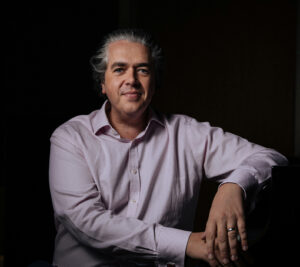
The score was developed from an original Russian folk-styled piece of music, and Balfe also took inspiration from Russian composers Sergei Prokofiev and Igor Stravinsky.
Loki
Natalie Holt composed the original score for Loki, which tells the characters’ story as an alternate version of Loki creates a new timeline.
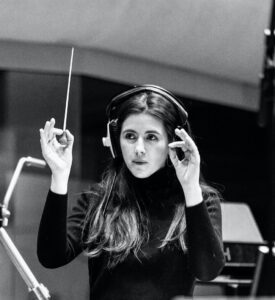
The score for the first season was released digitally in two volumes: music from the first three episodes and music from the last three episodes. Holt was nominated for Outstanding Music Composition for a Series (Original Dramatic Score) at the 74th annual Emmy awards for her work on Loki.
Moon Knight
Moon Knight’s score was composed by Egyptian composer Hesham Nazih as his first major English language project. The folk instruments, in Nazih’s opinion, had a strong presence and sonority in the composition without working against the texture of a classical orchestra.
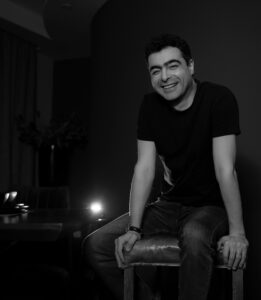
The series soundtrack used a combination of older and modern songs to portray Cairo’s music scene. Nazih was nominated for Outstanding Music Composition for a Series (Original Dramatic Score) at the 74th annual Emmy awards for his work on Moon Knight.
Moon Knight was especially popular amongst fans on Tunefind with placements such as ‘Enta’ by DJ Kaboo and ‘El Melouk – الملوك’ by Ahmed Saad, 3enba, Double Zuksh, topping the Tunefind trending chart after their respective episodes aired. In April 2022, Moon Knight’s use of ‘A Man Without Love’ by Engelbert Humperdinck topped the Billboard Top TV Songs Chart.
Thor: Love and Thunder
The fourth Thor movie was released in July 2022 and features the most sync placement driven soundtrack of any previous Thor film. Director Taika Watiti wanted the music to reflect the same aesthetic of the film with its “bombastic, loud, colorful palette.” Love and Thunder features numerous sync placements such as, ‘Welcome To The Jungle’ and ‘Sweet Child O’ Mine’ by Guns N’ Roses, ‘Family Affair’ by Mary J. Blige, and ‘Rainbow In the Dark’ by Dio.
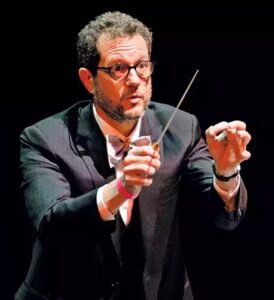
Michael Giacchino announced that he would be composing the music for the movie in December 2021. He previously composed the music for Doctor Strange and the MCU Spider-Man trilogy. The single ‘Mama’s Got a Brand New Hammer’, the film’s main suite, was released on June 30, 2022.
In addition, Phase 4 includes sequels for both Doctor Strange and Black Panther, a third Spider-Man film, and even more if you can believe it. It’s safe to say that Phase 4 was the biggest phase in the MCU’s history, so far.
Phase 5
At the time of this article’s initial publication, we are currently in Phase 5 of the MCU. Phase 5 opens with the third Ant-Man film titled, Ant-Man and The Wasp: Quantumania and is slated to continue releasing content into 2025.
Guardians of the Galaxy Vol. 3
By April 2017, director James Gunn felt the music for the third film would be different from what was used for the first two films’ soundtracks, Awesome Mix Vol. 1 and Vol. 2. In the third installment of The Guardians franchise, the songs come from Quill’s Zune that he received at the end of the second film. The latest film opens with an acoustic version of ‘Creep’ by Radiohead, which Gunn explains, provided “a much different tone from the beginning than the other two films.”
Although the songs featured in the third film are not considered modern, replacing Quill’s Walkman with the Zune added 3 decades of music that Gunn could now use. Rather than being constrained to the ’60s and ’70s music featured in the first 2 films, the Zune contained music ranging from the 1960s through the early 2000s.
Secret Invasion
This Disney+ series follows MCU veteran Nick Fury and Talos as they uncover a conspiracy by a group of shapeshifting Skrulls to conquer Earth.
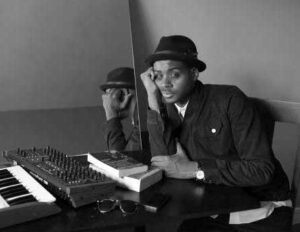
MCU newcomer Kris Bowers composed the score for the series and, similar to other MCU series, the score albums have been released episodically with Vol. 1 including music and cues from the first 3 episodes of the series.
Upcoming projects for Phase 5 of the MCU include Loki Season 2, The Marvels, Blade, Agatha: Coven of Chaos, Daredevil: Born Again, Captain America: Brave New World, Thunderbolts, What If…? Season 2, Echo, and Ironheart.
As the MCU evolves and new heroes rise, we can rest assured that music will continue to be an integral part of this extraordinary tapestry, forever etching itself into the hearts of fans around the globe. As we traverse the MCU’s expansive cinematic universe, let us not forget the powerful role of music in elevating the superhero experience.
As Marvel fans, we appreciate the role of music in enhancing the superhero tale. MCU soundtracks are crafted meticulously and their significance in character development, and their impact on the emotional resonance of the stories is nothing if not heroic.
Keep an eye on this article as we assemble any future MCU projects and check out Tunefind’s index of the MCU by phase, below.
Tunefind Index of the Marvel Cinematic Universe (MCU) (by phase)
Phase 1 (2008 to 2012)
Phase 2 (2013 to 2015)
- Iron Man 3
- Thor: The Dark World
- Captain America: The Winter Soldier
- Guardians of the Galaxy
- Avengers: Age of Ultron
- Ant-Man
Phase 3 (2016 to 2019)
- Captain America: Civil War
- Doctor Strange
- Guardians of the Galaxy Vol 2
- Spider-Man: Homecoming
- Thor: Ragnarok
- Black Panther
- Avengers: Infinity War
- Ant-Man and the Wasp
- Captain Marvel
- Avengers: Endgame
- Spider-Man: Far From Home
Phase 4 (2021 to 2022)
- WandaVision
- The Falcon and the Winter Soldier
- Black Widow
- Loki season 1
- What If…?
- Shang-Chi and the Legend of the Ten Rings
- Eternals
- Hawkeye
- Spider-Man: No Way Home
- Moon Knight
- Doctor Strange in the Multiverse of Madness
- Ms. Marvel
- Thor: Love and Thunder
- She-Hulk: Attorney At Law
- Werewolf By Night
- Black Panther: Wakanda Forever
- The Guardians of the Galaxy Holiday Special
Phase 5 (2023 to 2025)
- Ant-Man and The Wasp: Quantumania
- Guardians of the Galaxy Vol 3
- Secret Invasion
- Loki Season 2
- The Marvels
- Echo
- What If…? Season 2
- Blade
- Agatha: Darkhold Diaries
- Daredevil: Born Again
- Captain America: Brave New World
- Thunderbolts
- Ironheart
